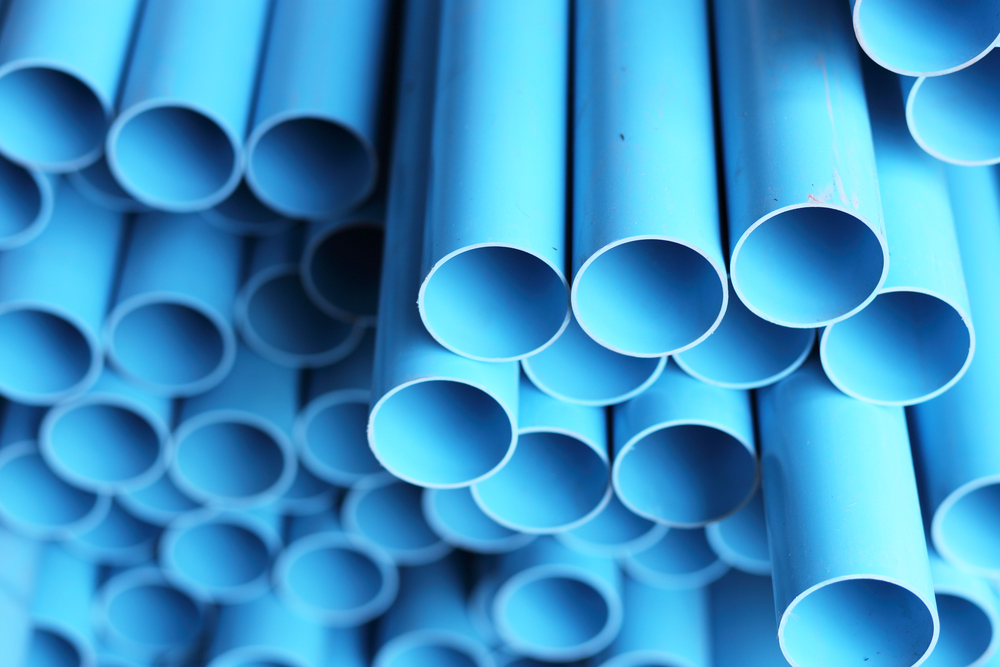PVC pipes fulfill demanding specifications and are competitive in terms of technical and cost performance.
 With its excellent technical qualities and very good chemical resistant properties, PVC pipes are used in a wide variety of applications, from potable water supply, gutters and sewerage, to the transport of gas and oil, as well as electrical and telecommunication applications. Light and easy to install, PVC pipes require low maintenance, provide greater hydraulic capacity and are resistant to scale deposits and abrasion.
With its excellent technical qualities and very good chemical resistant properties, PVC pipes are used in a wide variety of applications, from potable water supply, gutters and sewerage, to the transport of gas and oil, as well as electrical and telecommunication applications. Light and easy to install, PVC pipes require low maintenance, provide greater hydraulic capacity and are resistant to scale deposits and abrasion.
At ordinary temperatures, PVC is basically a hard plastic. It can be robust and durable and exhibits better tensile strength and tensile modulus compared to other general purpose plastics. This makes it highly suitable for water supply/sewage pipes, spouts, frames, etc.
In the Philippines, the major application of PVC is for pipes and fittings, comprising more than 50% of the market. In applications ranging from water delivery and landscape irrigation systems to drain, waste and vent (DWV) systems and sewage transport and electrical conduits, PVC plays a vital role in providing dependable piping service.
Major pipe sectors include the following:
- Water
Potable water delivery. Normally, the public water systems are a tree-like pipe networks consisting of: - Transmission lines (water mains, typically 36" in diameter or less)
- Distribution lines (lower diameter sizes: 6" - 12")
- Service connections (from street to building) 4” and less
- Sewer
Sanitary (waste water transport outside of the building) and storm (site runoff transport)
- Conduit/Ducting
Protection of electrical and communication wire, typically called conduit for above ground uses, and duct for below ground applications.
- Drain/Waste/Vent (DWV)
Waste water transport within a building
- Agriculture, Irrigation and Drainage
Water delivery for irrigation and ground drainage